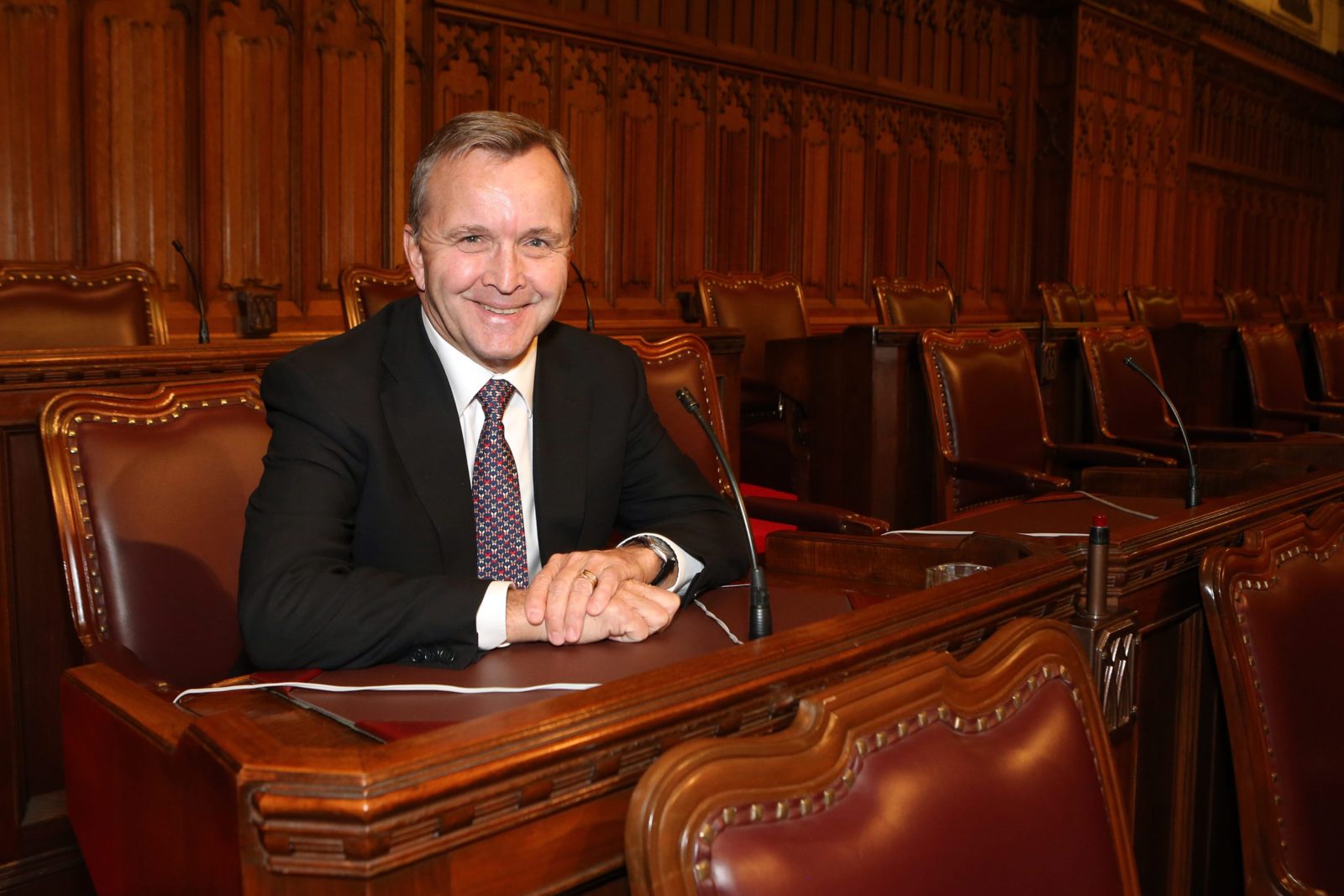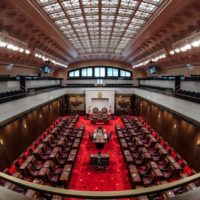
News
Reducing partisanship in the Senate increases credibility: Senator Mitchell
“Rebuilding public trust requires a considerable cultural change.”
Senator Grant Mitchell appeared on a panel at Dalhousie University’s MacEachen Institute for Public Policy and Governance, where he joined current and former colleagues to discuss the merits of an independent Senate versus those of a partisan Upper Chamber. Here is his opinion piece on the importance of the Senate closing the credibility gap with Canadians. It originally appeared in the Halifax Chronicle-Herald on Oct. 11, 2017.
Between the years 2005 and 2014, I sat as a proud member of the Liberal Party caucus in the Senate of Canada.
During that period, I was never told how to vote or what position to take on a debate. But, to say that I didn’t think about how my deliberations might affect my colleagues in the House of Commons would be false.
And even if I didn’t feel compelled to modify my positions, I did consider how my words might impact the Liberal MPs in what we senators call ‘the other place.’ Furthermore, I would reflect on whether a difference of opinion on an issue important to me might be viewed as a departure from the party position.
It strikes me now that, if I was thinking about how my views might affect the political prospects of my party, surely residents in my home province of Alberta were thinking the same thing. They might fairly ask whether my affiliation with the Liberals coloured my views. And despite my belief that party affiliation didn’t affect my judgment, perception is often reality.
Recently, I appeared with former and current Senate colleagues at the MacEachen Institute for Public Policy and Governance to compare the merits of an Independent Senate versus those of a partisan Upper Chamber.
Not all senators on that panel shared my belief that party partisanship does not serve the Senate in a positive way. But I can say that, in my own view, party partisanship is a key reason for the credibility problem that the Senate began suffering in the early part of this decade.
Yes, the reputational woes of the Senate were damaged by the expense scandal. But if that were the only thing that needed fixing, we would be well on our way, given the many reforms that have been put in place by my senatorial colleagues. Moreover, most Canadians do not define the worth of their institutions based on the behaviour of a few.
The credibility problem that has beset the Upper Chamber goes a lot deeper than the serious issue of making false expense claims for travel, shelter, meals and hospitality. Rebuilding public trust requires a considerable cultural change – one that must be pushed along by institutional transformations that include the efforts to reduce partisanship.
In my view, partisan politics became increasingly toxic in the first years of the millennium, and washed over from the House of Commons to the Senate. I was part of it. Mea culpa.
But, like so many others, I began to hear several years ago from folks back home that partisanship was getting in the way of our good judgment.
While partisanship is a necessity in the Commons, voters can have their say if there’s too much of it. That option doesn’t exist when it comes to an unelected Senate.
The watershed moment for me took place in 2014, when Prime Minister Trudeau delinked his Liberal Party MPs from their Senate colleagues. While this took some of us aback, the new detachment allowed me to worry less about how my words would affect the electoral prospects of the party in the House.
The prime minister has also set up a system under which all future Senators appointed on his recommendation will not belong to a partisan caucus in the Senate. That allows senators to provide the kind of sober second thought that is unencumbered by how those views might influence the political future of one party or another. This is the kind of non-partisan freedom that increasingly matters to Canadians. It builds trust with the public that Senators are working for them.
For the record, it’s my view that the Senate is well on its way to closing the credibility gap with Canadians.
We are working hard, for example, to establish an oversite mechanism that will safeguard the expenditure of taxpayer money, including expenses. We are posting expenses on-line for all Canadians to view should they want to. And we’ve strengthened an already-robust ethics code that ensures those who don’t meet the standards for public service face consequences.
Perhaps, though, at the end of the day, the most important thing we can do as Senators is to free our own minds so we can offer Canadians our best judgment without fear or favour of those who appointed us.
I’m not prepared to say the Senate is now doing better work than before, because it has always done great work. But what I am prepared to say with conviction is that the changes to this point have begun to restore Canadians’ faith in how we do our job.
Grant Mitchell is an Independent Senator who acts as the Government Liaison in the Office of the Government Representative in the Senate, a position previously known as government whip. Watch his panel discussion at the MacEachen Institute for Public Policy and Governance:




















































